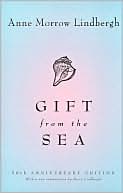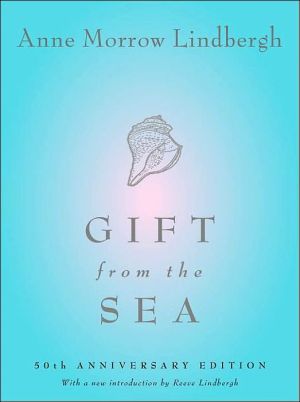At Eighty-Two: A Journal
For the many thousands of fans who have been nourished by May Sarton's words over the years, this last journal by the beloved Maine poet/writer will be very special. May Sarton died on July 16, 1995, just a few months after she finished this pilgrimage through her 82nd year. Over the two decades since she published Journal of a Solitude, Sarton's journals have been eagerly awaited, markers of daily events, feelings, and responses to the world around her house-by-the-sea. In this last journal,...
Search in google:
For the many thousands of fans who have been nourished by May Sarton's words over the years, this last journal by the beloved Maine poet/writer will be very special. May Sarton died on July 16, 1995, just a few months after she finished this pilgrimage through her 82nd year. Over the two decades since she published Journal of a Solitude, Sarton's journals have been eagerly awaited, markers of daily events, feelings, and responses to the world around her house-by-the-sea. In this last journal, Sarton continues to adjust to the feeling that she is a stranger in the land of old age. And though her struggles and daily setbacks continue, there is an optimistic, musing tone as she contemplates this unique time in a person's life. Beth Wolfensberger May Sarton, the poet who charted her late-middle and old age in a series of published journals, died in July, leaving behind the last of them, At Eighty-Two. Sarton worried about this book: "It is a description of severe depression," she writes in one entry, "and I have been wondering even if it should be published." Such doubts won't be shared, however, by the many readers already addicted to her daily musings. As in her earlier journals, Sarton recounts mostly mundane occurrences -- conversations with her many friends, books she reads. She shares poems and snippets of fan mail; she admires her cat. Her low days stem not from a prescient suspicion that she is living her last full year, but from tallying up regrets. Regret one: that she is "nowhere as a poet" and "a failure" because her fans are "ordinary people," not reviewers. Regret two, ironically (as she occasionally realizes): that she's uncomfortably busy getting published and being revered. Beset by the frailties of age, she rarely steps out to her beloved garden. Still, she's showered with flowers and notes from devotees, and she so delights in life's small pleasures that -- despite weeping over bum reviews and endangered species -- she rarely seems truly depressed. "Yesterday was a dismal, absolutely dismal day," begins a typical sentence, "except for the fact that a bunch of flowers and a beautiful pink cyclamen came for me." Alternately cranky, whiny, nostalgic, appreciative, thrilled, Sarton is both childish and appealingly childlike. Which may be why, although this isn't the strongest of her journals, we miss her when the final page is turned. -- Salon
\ Beth WolfensbergerMay Sarton, the poet who charted her late-middle and old age in a series of published journals, died in July, leaving behind the last of them, At Eighty-Two. Sarton worried about this book: "It is a description of severe depression," she writes in one entry, "and I have been wondering even if it should be published."\ Such doubts won't be shared, however, by the many readers already addicted to her daily musings. As in her earlier journals, Sarton recounts mostly mundane occurrences -- conversations with her many friends, books she reads. She shares poems and snippets of fan mail; she admires her cat. Her low days stem not from a prescient suspicion that she is living her last full year, but from tallying up regrets. Regret one: that she is "nowhere as a poet" and "a failure" because her fans are "ordinary people," not reviewers. Regret two, ironically (as she occasionally realizes): that she's uncomfortably busy getting published and being revered.\ Beset by the frailties of age, she rarely steps out to her beloved garden. Still, she's showered with flowers and notes from devotees, and she so delights in life's small pleasures that -- despite weeping over bum reviews and endangered species -- she rarely seems truly depressed. "Yesterday was a dismal, absolutely dismal day," begins a typical sentence, "except for the fact that a bunch of flowers and a beautiful pink cyclamen came for me." Alternately cranky, whiny, nostalgic, appreciative, thrilled, Sarton is both childish and appealingly childlike. Which may be why, although this isn't the strongest of her journals, we miss her when the final page is turned. -- Salon\ \ \ \ \ \ Publishers Weekly - Publisher's Weekly\ PW called this last of poet Sarton's published journals "a poignantly intimate portrait of a literary life." (May)\ \ \ Library JournalSarton's final work-she died earlier this year-seems at times an endless complaint. Despite the lavish care and attention offered by her friends and readers, nothing could compensate her for her ill health and lack of critical acclaim by the literary establishment ("being nowhere as a poet"). Depression was an almost constant state for Sarton during her 1993-94 journal-recording year. She writes that she has tried her entire life to go into the inner chamber of her soul, where she is happy. Unlike A Journal of a Solitude (LJ 4/1/73), in which her perception of life is charged with understanding and insight, in this journal the inner soul is illusive. The daily deluge of devotional letters, the routine gifts of chocolate and flowers, the translation of her writings into Japanese do not boost her spirit. Sarton knew that life is full of poetry. However, she also knew "there is a pane of glass between me and almost everything," excepting her cat, Pierrot. Sarton asks, "Where is myself? God knows." There must have been some satisfaction in knowing that. For literature collections.-Robert L. Kelly, Fort Wayne Community Schs., Ind.\ \








